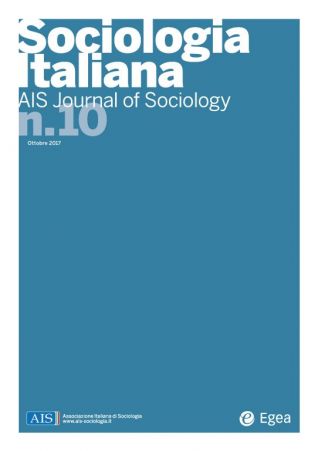AIS
2017/10
Le «promesse» dei corsi di studio magistrali in Sociologia tra patto formativo e strategie di marketing (Content versus marketing strategies: masters degrees in Sociology and the promises they make to students), di D. Borrelli, R. Serpieri, D. Taglietti, D. Trezza
Il presente lavoro propone un’analisi dei dati secondari dei corsi di studio magistrali in Sociologia (LM-88), così come sono mostrati nel sito MIUR dedicato (www.universitaly.it). Per ciascuno dei corsi abbiamo distinto i dati disponibili in due dimensioni principali: la prima è relativa alla struttura dei percorsi di formazione; la seconda riguarda le «promesse» dei corsi in termini di acquisizione di competenze cognitive e professionali. Abbiamo lavorato sui dati testuali per due obiettivi. Innanzitutto, per evidenziare aree semantiche ricorrenti attraverso un’analisi lessicometrica. Poi, per discutere il rapporto fra le dimensioni summenzionate, mostrando il gap che separa le promesse dichiarate dai corsi rispetto ai relativi percorsi formativi. Riteniamo che tale approccio sia utile a mettere in luce ciò che viene spesso ignorato nella valutazione dei corsi di studio, ossia il contenuto dei relativi programmi.
Content versus marketing strategies: masters degrees in Sociology and the promises they make to students
Our work consists of a secondary data analysis of the syllabi of masters degrees in sociology (LM-88), as they appear on the dedicated Italian Ministry of Education website (www.universitaly.it). For each course, we grouped the data available into two main areas: the first being the structure of the educational pathways of students and graduates; the second regarding the «promises» of the various syllabi, i.e. the cognitive and professional competencies each claims to deliver. We chose to work with textual data to accomplish two different goals. Firstly, it enabled us to identify recurrent semantic areas by means of a lexicometric analysis. Secondly, it gave us the opportunity to explore the relations between the aforementioned areas, highlighting the gap between the promises made and the existing structures. We believe this approach will shed light on what is often ignored in the evaluation of master degrees, namely the contents of the official syllabi.
L'ACCESSO A QUESTO CONTENUTO E' RISERVATO AGLI UTENTI ABBONATI
Sei abbonato? Esegui l'accesso oppure abbonati.
